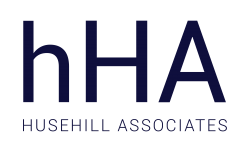
When a major product is about to launch or your team is scheduled to make an important presentation, it’s easy to ride the wave of deadline-induced adrenaline spikes and push yourself to work every waking moment. But of course that’s not sustainable, and we inevitably crash. So how can you make productivity habitual and lasting?
The first step is to understand that productivity means optimizing your entire life, not just work. A well-designed personal life supports your efforts at work, and being strategic about when and how you work is what lets you have a rich personal life. So figure out ways for them to complement each other. Wharton professor Stew Friedman has developed the concept of the four-way win, a framework that asks us to consider how one activity can, ideally, influence us positively in multiple areas: our personal life, professional life, community or civic relationships, and health (mental, physical, and spiritual).
For example, instead of wolfing down a sandwich at your desk, if you eat a healthy lunch with a coworker you like, you’re simultaneously benefiting your health, your professional life, and your sense of community. You might not normally consider “eating lunch” to be a productive activity, but seen through Friedman’s lens, you’re actually hitting multiple goals.
Next, when you’re considering your to-do list, it’s important to match the task to the amount of focusnecessary to accomplish it. Tony Schwartz has written in HBR about the importance of managing your energy, not your time, which includes sensible advice like getting enough sleep and taking short renewal breaks approximately every 90 minutes. But one additional innovation that can allow you to wring more productivity out of your day is to keep a list of tasks that must be accomplished but require relatively little mental energy.
It takes me substantially more brainpower to write an article than to read one, for instance, so I’ve learned to schedule my writing when I’m in the morning, at my freshest. As the day progresses, my ability to be creative diminishes but I can still extend my productive workday by at least an hour or two if I confine my brain-dead time to low-stakes but necessary tasks like reading books for research or catching up on email discussion groups. If your circadian rhythms differ, you can reverse the process by starting slow and then tackling more productive work later in the day.
It’s also important to use short bursts of time well. Most of us could make a serious dent in our work if we had an uninterrupted block of three or four hours to finally finish that report. But for most professionals, having that amount of blank space on your calendar is a pipe dream. Though trying to schedule large blocks of time for more introspective or sustained work is a worthwhile goal, our calendars most often are pockmarked with staccato 30- or 60-minute breaks in between an array of webinars, conference calls, and meetings. Because those blocks are so short, planning out how we’re going to spend them doesn’t seem necessary; most of us just default to answering email or, worse, get caught up in a social media vortex until it’s time to head to our next obligation.
Instead, take a cue from Give and Take author Adam Grant, a noted productivity overachiever, who told me in an interview, “I have lots of micro-goals of trying to get things done, whatever the amount of time available.” My version of this idea is to examine the next day’s calendar the night before, identify the gaps in my schedule, and create a list of what I want to accomplish during them.
It might change in the moment: if a reporter emails me for comment about a breaking news story, I’ll probably abandon my original plan and return her message instead. But having a sense of what I “should” be doing during those short periods — ordering the plane tickets, writing the recommendation letter I promised, or uploading an Amazon review for my friend’s new book — keeps me on target and dissuades me from frittering away those short spurts of time. Over the span of a week, they add up.
Like a crash diet, it’s easy to go heads-down for a short period of time. But no human can focus solely on work for 12 or 16 hours a day, every day; even the most ambitious, motivated person can’t sustain that level of focus without seeing their performance ultimately suffer. The secret to productivity is sustaining your commitment and keeping up your discipline over time. By understanding what productivity really means to you, matching your energy to the task at hand, and leveraging even short amounts of free time, you can make serious progress on the most important goals.
Dorie Clark is a marketing strategist and professional speaker who teaches at Duke University’s Fuqua School of Business. She is the author of Reinventing You and Stand Out. You can receive her free Stand Out Self-Assessment Workbook
Resource: Harvard Business Review, March 2016.
